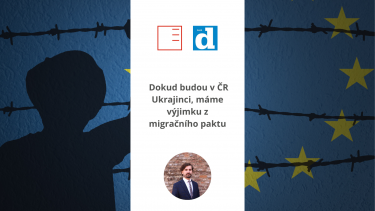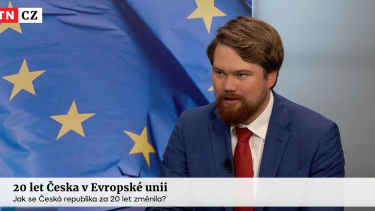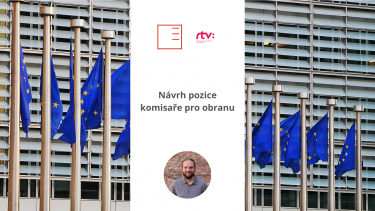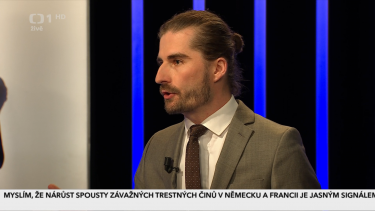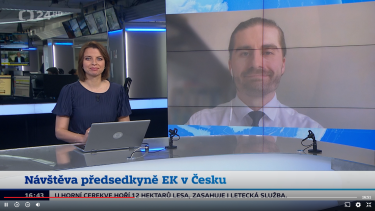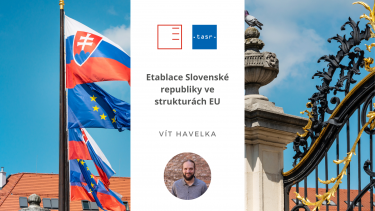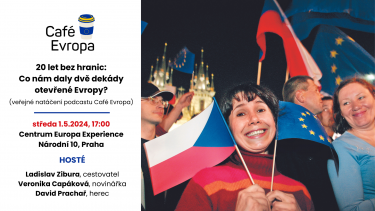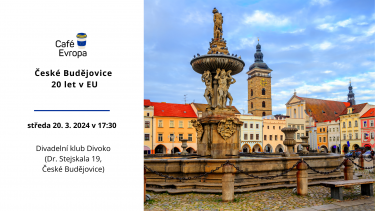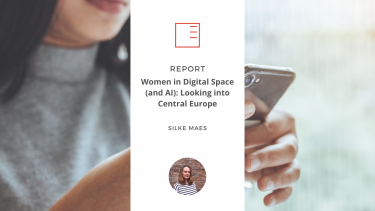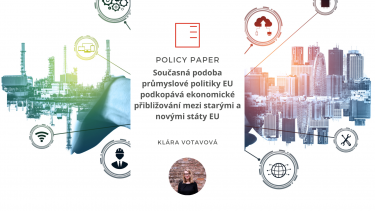Evropa pro Čechy | As long as there are Ukrainians in the Czech Republic, we have an exemption from the migration pact
There are simply no quotas in the migration pact that would force the Czech Republic to accept refugees from other EU countries, Viktor Daněk, deputy director of the EUROPEUM Institute, says unequivocally on the Deník's Evropa pro Čechy podcast.
Show moreTN.cz | 20 years of Czechia in the EU
On the 1st of May, we celebrate the 20th anniversary of the Czech Republic's accession to the European Union. How did the process of approval and accession to the EU proceed at the beginning of this century? What is the attitude of Czechs towards the EU? What was the original idea of the European community? The Executive Director of EUROPEUM Institute, Martin Vokálek, answered these questions for TN Live.
Show more
RTVS | Proposal for the position of Commissioner for Defense
The current President of the European Commission, Ursula von der Leyen, proposes the creation of a new position: Commissioner for Defense in the future Commission. Is this proposal feasible? When could this position be established? And who would fill it? How would enhanced EU defense operate alongside NATO was addressed by Vít Havelka, Senior Researcher at EUROPEUM Institute, in a commentary for the Slovak television RTVS.
Show more
Máte slovo | Migration Pact
Will the migration pact make it compulsory for the Czech Republic to accept refugees? Will the pact limit the flow of refugees into Europe? Viktor Daněk, deputy director of the EUROPEUM Institute, discussed this on Czech Television's programme Máte slovo.
Show moreČT24 | Visit of the European Commission President to the Czech Republic
European Commission President Ursula von der Leyen arrived in the Czech Republic. She met with President Petr Pavel and Prime Minister Petr Fiala. The visit was part of the campaign ahead of the European Parliament elections in June. Viktor Daněk, Deputy Director of EUROPEUM Institute, commented on Ursula von der Leyen's arrival in the Czech Republic.
Show moreTASR | Establishment of the Slovak Republic in the EU structures
Twenty years ago, the European Union underwent its biggest enlargement with the addition of ten Central and Eastern European countries. According to Vít Havelka, Senior Research Fellow at EUROPEUM Institute, this is enough time for all accession countries to learn how to navigate the EU institutions and its decision-making process.
Show more
Café Evropa | 20 years without borders: what have two decades of open Europe given us?
We invite you to a public recording of the Café Evropa podcast. Come and discuss twenty years of open Europe with representatives of the generation that has lived most of its life there, as well as those who remember the past regime and the waiting at the borders. What do you remember?
Show moreCafé Evropa: České Budějovice 20 years in EU
We invite you to the next debate of the Café Evropa series. Come and talk to us about what current european issues are resonating in České Budějovice and how you imagine Europe. Are you interested in nuclear energy, electromobility, euro, local projects supported by the EU, culture or any other european topics?
Show moreReport | Women in Digital Space (and AI): Looking into Central Europe: cases from Austria, Czechia, Poland and Slovakia
Our researcher Silke Maes in her latest report addresses issues of cyberviolence on women and examines whether women in the CEE benefit from digitalisation (and AI). The report looks into how women use and contribute to the digital space, examines opportunities and challenges and proposes recommendations for a more inclusive digital space.
Show morePolicy paper | Current EU industrial policy undermines economic convergence between old and new EU countries
The post-communist states of Central and Eastern Europe, including the Czech Republic, joined the European Union at the height of globalisation and the dominance of the so-called Washington Consensus policies. However, the global economic crisis of 2008 showed shortly afterwards that these policies had their limits. Read more in Klára Votavová's Policy Pepeu.
Show moreStaroměstské náměstí 4/1
Prague 1 - Staré Město
110 00
tel.: +420 212 246 552
email: europeum@europeum.org
https://www.europeum.org
